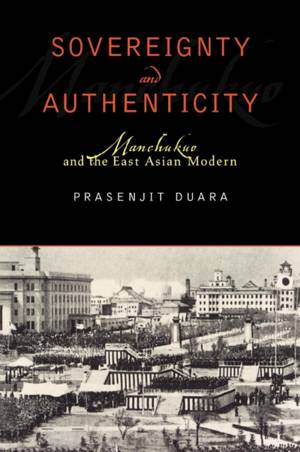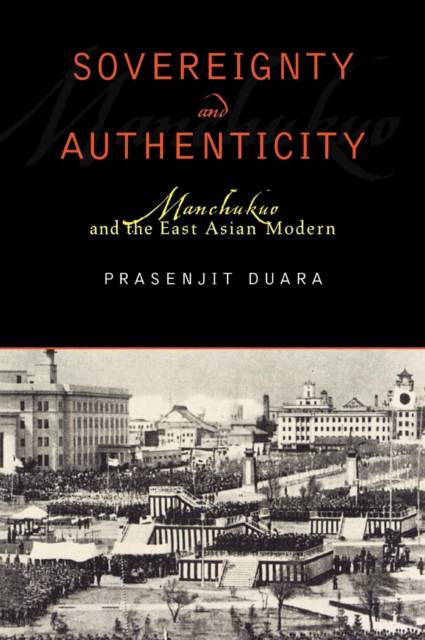
- Afhalen na 1 uur in een winkel met voorraad
- Gratis thuislevering in België vanaf € 30
- Ruim aanbod met 7 miljoen producten
- Afhalen na 1 uur in een winkel met voorraad
- Gratis thuislevering in België vanaf € 30
- Ruim aanbod met 7 miljoen producten
Zoeken
€ 114,95
+ 229 punten
Uitvoering
Omschrijving
In this powerful and provocative book, Prasenjit Duara uses the case of Manchukuo, the Japanese puppet state in northeast China from 1932-1945, to explore how such antinomies as imperialism and nationalism, modernity and tradition, and governmentality and exploitation interacted in the post-World War I period. His study of Manchukuo, which had a population of 40 million and was three times the area of Japan, catalyzes a broader understanding of new global trends that characterized much of the twentieth century. Asking why Manchukuo so desperately sought to appear sovereign, Duara examines the cultural and political resources it mobilized to make claims of sovereignty. He argues that Manchukuo, as a transparently constructed 'nation-state, ' offers a unique historical laboratory for examining the utilization and transformation of circulating global forces mediated by the 'East Asian modern.' Sovereignty and AUthenticity not only shows how Manchukuo drew technologies of modern nationbuilding from China and Japan, but it provides a window into how some of these techniques and processes were obscured or naturalized in the more successful East Asian nation-states. With its sweepingly original theoretical and comparative perspectives on nationalism and imperialism, this book will be essential reading for all those interested in contemporary history.
Specificaties
Betrokkenen
- Auteur(s):
- Uitgeverij:
Inhoud
- Aantal bladzijden:
- 320
- Taal:
- Engels
- Reeks:
Eigenschappen
- Productcode (EAN):
- 9780742525771
- Verschijningsdatum:
- 25/03/2003
- Uitvoering:
- Hardcover
- Formaat:
- Genaaid
- Afmetingen:
- 160 mm x 234 mm
- Gewicht:
- 562 g

Alleen bij Standaard Boekhandel
+ 229 punten op je klantenkaart van Standaard Boekhandel
Beoordelingen
We publiceren alleen reviews die voldoen aan de voorwaarden voor reviews. Bekijk onze voorwaarden voor reviews.











